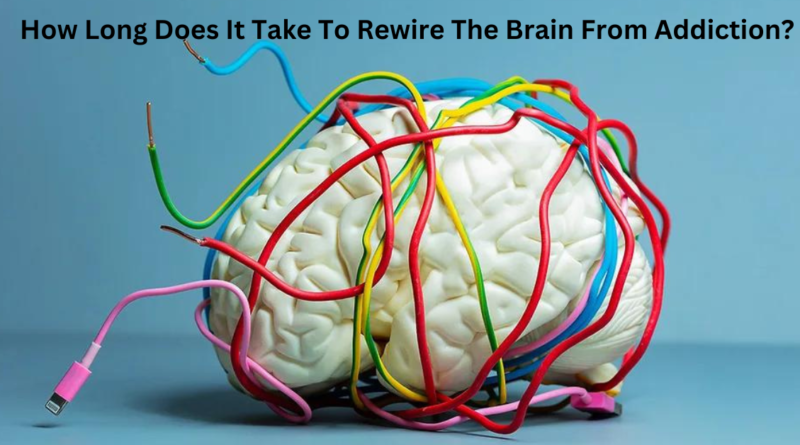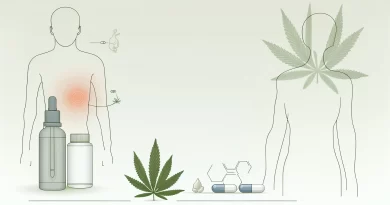How Long Does It Take To Rewire The Brain From Addiction?
Addiction is a formidable adversary that countless individuals grapple with worldwide. Whether it involves substances like drugs and alcohol or behavioral patterns such as gambling or gaming, breaking free from addiction is a journey that demands relentless effort and unwavering commitment. Central to addiction recovery is replacing addictive behaviors with healthier alternatives. But the pressing question lingers: How long does it take to rewire the brain from addiction? This question is particularly relevant in the context of online gambling platforms like DaVegas, where the accessibility and convenience of digital betting can make it challenging for some individuals to maintain healthy gaming habits. Understanding the process of rewiring the brain is crucial not only for those struggling with substance addictions but also for individuals navigating the complex landscape of online gaming and betting.
Understanding the Brain-Addiction Dynamic
To comprehend the duration required for rewiring the brain from addiction, it’s crucial to grasp how addiction influences the brain. The intricate disease of addiction targets the brain’s reward system, releasing dopamine – a neurotransmitter pivotal in pleasure and motivation.
When individuals engage in addictive actions like substance use, alcohol consumption, or gambling, the brain floods the system with excessive dopamine, triggering euphoria. Over time, the brain adapts to this dopamine surge by reducing dopamine receptors or curbing dopamine production. This adaptation leads to tolerance, where escalating substance or behavior consumption becomes necessary to achieve the same pleasure level. Prolonged addiction can profoundly alter the brain’s structure and functionality, complicating quitting attempts.
Unpacking the Brain’s Rewiring Process
Rewiring the brain from addiction involves forging new neural pathways that endorse constructive behaviors while diluting connections to addiction. This transformative process, known as neuroplasticity, underscores the brain’s capacity for change. Neuroplasticity comprises two primary elements: synaptic pruning and synaptic strengthening.
Synaptic Pruning: This phase eliminates redundant or unused neural connections, clearing the path for new connections to flourish.
Synaptic Strengthening: This facet bolsters active connections, reinforcing positive behaviors while weakening the grip of addictive tendencies.
The process mandates dedication and consistent effort, necessitating unearthing deeply ingrained habits and behaviors.
The Time Factor: How Long Does It Take to Rewire the Brain from Addiction?
A multitude of factors influences the duration to rewire the brain from addiction:
1. Type and Severity of Addiction: The nature and intensity of addiction can impact the brain’s rewiring ability. Substance addictions, like drugs or alcohol, can inflict more profound structural and functional alterations on the brain than behavioral addictions.
2. Motivation and Dedication: The resolve and dedication to recovery significantly shape the brain’s rewiring process. Individuals who are steadfast in quitting addictive behaviors and wholeheartedly committed to their recovery journey are more likely to experience constructive changes in the brain.
3. Treatment Methods Employed: The choice of treatment methods also influences brain rewiring. Evidence-backed approaches, such as cognitive-behavioral therapy and medication-assisted treatment, have shown efficacy in promoting rewiring and fostering recovery.
4. Support System: The role of support, be it from family, friends, or healthcare professionals, is pivotal in rewiring the brain from addiction. A robust support network can bolster motivation, provide accountability, and nurture a sense of community.
5. Self-Care Practices: Self-care, encompassing exercise, proper nutrition, and stress management, contributes to the brain’s rewiring capacity. Exercise enhances neuroplasticity by boosting brain-derived neurotrophic factor (BDNF), a protein critical for adaptability.
The General Timeline
While individual experiences vary, research suggests that at least 90 days of abstinence are required to initiate brain rewiring from addiction. This timeframe is grounded in the brain’s need to reset dopamine receptors and restore natural dopamine production.
Conclusion
In the intricate web of addiction recovery, rewiring the brain is a pivotal endeavor that necessitates perseverance, determination, and unwavering support. While a broad timeline of at least 90 days exists, various factors collectively determine the length of this process. Tailoring to the type and intensity of addiction, cultivating motivation, embracing evidence-backed treatments, and nurturing a robust support system all contribute to the brain’s rewiring journey. As individual experiences vary, the path to rewiring the brain from addiction is as diverse as the individuals undertaking it.




